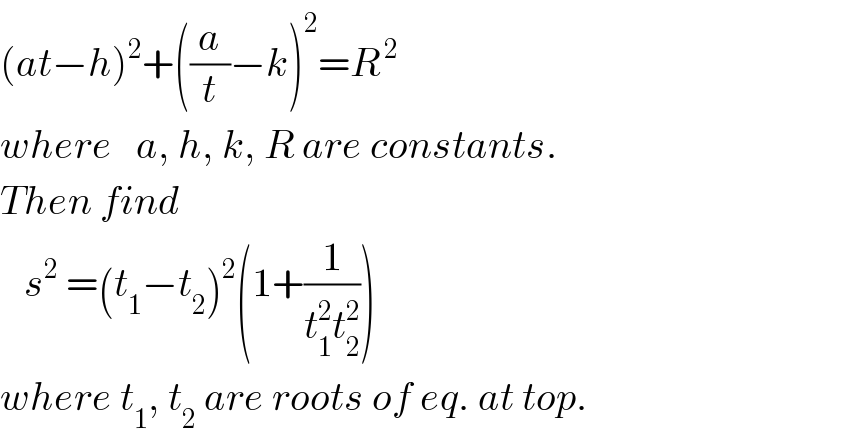
Question Number 48482 by ajfour last updated on 24/Nov/18

$$\left({at}−{h}\right)^{\mathrm{2}} +\left(\frac{{a}}{{t}}−{k}\right)^{\mathrm{2}} ={R}^{\:\mathrm{2}} \\ $$$${where}\:\:\:{a},\:{h},\:{k},\:{R}\:{are}\:{constants}. \\ $$$${Then}\:{find}\: \\ $$$$\:\:\:{s}^{\mathrm{2}} \:=\left({t}_{\mathrm{1}} −{t}_{\mathrm{2}} \right)^{\mathrm{2}} \left(\mathrm{1}+\frac{\mathrm{1}}{{t}_{\mathrm{1}} ^{\mathrm{2}} {t}_{\mathrm{2}} ^{\mathrm{2}} }\right)\: \\ $$$${where}\:{t}_{\mathrm{1}} ,\:{t}_{\mathrm{2}} \:{are}\:{roots}\:{of}\:{eq}.\:{at}\:{top}. \\ $$
